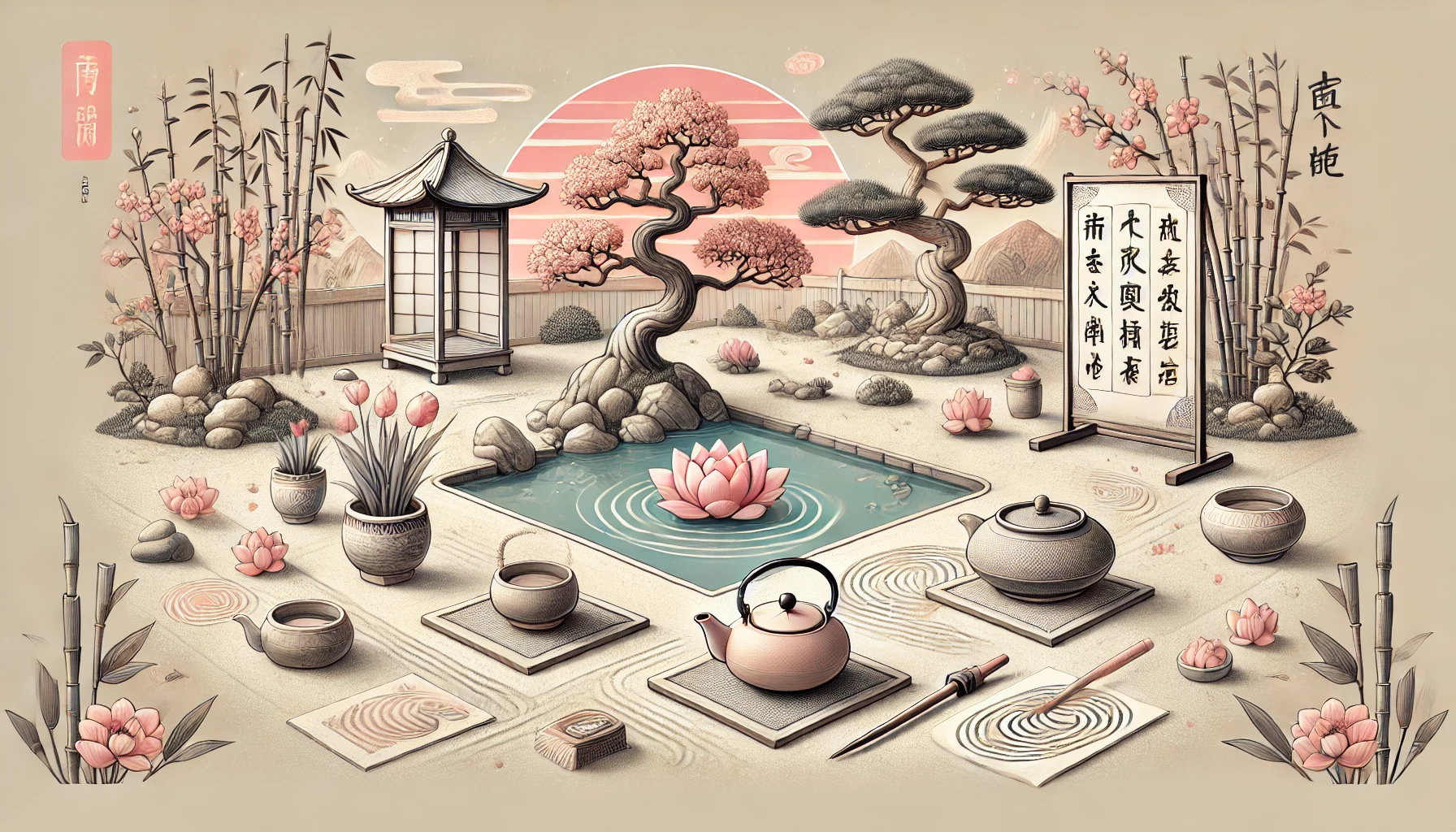✨8 Japanese Techniques to Stop Overthinking and Cultivate Mindfulness✨
In today’s fast-paced world, our minds can easily become cluttered with constant thoughts and worries. Fortunately, ancient Japanese techniques to stop overthinking offer simple yet profound solutions to calm the mind, enhance focus, and embrace mindfulness. These time-tested philosophies can guide you toward peace of mind and a more balanced life. Let’s dive into these powerful methods that can help you break free from overthinking! 🧠💭
1. Ikigai (生き甲斐): Discover Your Life’s Purpose 🎯
Ikigai means having a reason to wake up excited each day. This Japanese concept provides a powerful way to end overthinking by focusing on what gives your life meaning. When you align with your purpose, your mind becomes less occupied with trivial worries and more centered on what truly matters.
4 Rules of Ikigai:
Do what you love 💖
Do what you’re good at 💡
Do what the world needs 🌍
Do what you can be paid for 💰
By discovering your Ikigai, you gain clarity and direction, which can naturally reduce stress and overthinking.
2. Kaizen (改善): Continuous Improvement 📈
The Kaizen method focuses on making small, daily improvements rather than overwhelming yourself with massive changes. Instead of striving for perfection all at once, Kaizen teaches us to break tasks into manageable steps—improving by just 1% each day. 🌱
This mindset helps eliminate the pressure of doing everything perfectly and allows you to focus on progress. When you shift to small, consistent efforts, you create momentum and leave little space for overthinking.
Tip: Break large goals into smaller, actionable tasks to boost productivity without overwhelm! 🗂️
3. Shoshin (初心): Adopt a Beginner’s Mind 🌱
Shoshin, or the beginner’s mindset, is about approaching every situation with an open mind, free from preconceived notions. Often, overthinking comes from feeling like we know too much, but with Shoshin, we return to a place of curiosity and openness. 🧘♀️
“In the beginner’s mind, there are many possibilities, but in the expert’s mind, there are few.” – Shunryu Suzuki
By embracing this approach, you remain curious and detached from the anxiety of always needing the “right” answer. This helps quiet your inner critic and leaves room for discovery. 🌸
4. Hara Hachi Bu (腹八分目): Eat Until You're 80% Full 🍲
Overthinking isn’t just mental—it can be physical too! In Japan, Hara Hachi Bu means stopping eating when you’re 80% full. The idea is to avoid overindulgence, which can lead to laziness and lethargy. 💤
If you overeat, your body uses energy to digest, leaving you feeling tired and prone to procrastination. By practicing Hara Hachi Bu, you maintain a lighter, more energetic state that reduces the likelihood of falling into negative thinking patterns.
Pro Tip: Practice mindful eating and listen to your body to avoid sluggishness. 🍽️
5. Shinrin-yoku (森林浴): Forest Bathing 🌳
Shinrin-yoku, or forest bathing, is the practice of immersing yourself in nature to reduce stress and overthinking. Spending time in nature allows you to disconnect from the constant buzz of everyday life and reconnect with the calming rhythms of the natural world. 🌿
Science-backed benefits of Shinrin-yoku include reduced stress hormones, improved mood, and enhanced mental clarity. So, whenever you feel overwhelmed, take a walk in nature and breathe in the tranquility. 🌲🍃
6. Wabi-sabi (侘寂): Embrace Imperfection 🍂
Perfectionism fuels overthinking. The Japanese philosophy of Wabi-sabi teaches us to find beauty in imperfection. Life is inherently flawed, and so are we. Instead of constantly striving for perfection, Wabi-sabi encourages us to accept things as they are, finding grace in their natural state. 🌸
Reminder: Things don’t have to be perfect. Love the process, embrace flaws, and let go of the constant worry that things must be “just right.” This helps in releasing the mind from needless overthinking. 💡
7. Ganbaru (頑張る): Persevere with Patience ⏳
Ganbaru means to do your best, to persevere even when things get tough. This principle emphasizes that anything worth doing takes time, patience, and dedication. Overthinking often stems from impatience or the desire for instant results. 🏃♂️
Ganbaru teaches you to trust the process. Stay patient, remain resilient, and stop worrying about immediate outcomes. This mindset frees you from dwelling on what’s not going well and helps you focus on steady progress. 💪
8. Gaman (我慢): Endure with Strength 🧘♂️
In life, challenges are inevitable. Gaman is the Japanese concept of enduring difficult situations with dignity, patience, and strength. It encourages emotional resilience and perseverance through hardships. ✊
By accepting that setbacks are part of any journey, you can prevent the overthinking that arises from frustration or fear of failure. Gaman reminds us that success doesn’t come without its struggles, and enduring the tough moments builds inner strength. 🌟
Final Thoughts 💭
These 8 Japanese techniques to stop overthinking offer more than just quick fixes—they promote a mindset shift that allows you to cultivate mindfulness, embrace the present, and reduce anxiety. By adopting these time-honored practices, you can calm your mind, improve focus, and live with greater clarity.
Whether it’s finding your Ikigai or taking a peaceful Shinrin-yoku walk, start incorporating these philosophies into your daily routine to see real change. 🌼


















